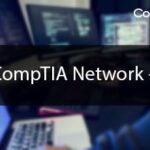Introduction To Ethical Hacking in English | Ethical Hacking Course

Introduction To Ethical Hacking in English | Ethical Hacking Course
Introduction To Ethical Hacking in English
The need for cybersecurity is crucial in the current digital era. Cyber attacks have increased in frequency, sophistication, and destructiveness as a result of society’s growing reliance on technology. Effective security measures must be used by both businesses and individuals to protect against such dangers. One such technique that has grown in favor recently is ethical hacking.
What is Ethical Hacking?
White-hat hacking, commonly referred to as ethical hacking or penetration testing, is a legitimate procedure of breaking into systems to find their flaws and weaknesses. In addition, ethical hackers are skilled experts who find security flaws in systems and notify those who own them using exactly the same practical methods as malevolent intruders. To improve the safety record of the system, ethical hacking is done with the entire system owner’s knowledge and consent.
Why is Ethical Hacking Important?
Ethical hacking is crucial since it aids in finding and repairing system vulnerabilities prior to them being abused by counterfeiters. In addition, businesses can evaluate their safety record and strengthen their barriers against cyber attacks by engaging in ethical hacking precisely. Additionally, it assists businesses in adhering to industry standards and regulations.
The Scope of Ethical Hacking
Web application testing, network security testing, mobile device security testing, and social engineering testing are just a few of the many disciplines that fall under the broad umbrella of ethical hacking, which is pretty vast. In addition, testing web applications entails looking for security flaws such as SQL injection, cross-site scripting, and buffer overflow.
Moreover, testing the reliability of networks’ routers, firewalls, and switches is known as network security testing. In this regard, testing the safety parameters of mobile devices, like smartphones and tablets, is known as mobile device security testing.
Furthermore, phishing and other social engineering attacks are examples of the human component of security that are tested during social engineering testing.
Ethical Hacking Methodologies
Approaches for ethical hacking are organized methods to find and use weaknesses in a system. Several of the frequently employed ethical hacking techniques include:
- Reconnaissance – During the reconnaissance phase, details about the targeted system are gathered, including IP addresses, open ports, and operating systems.
- Scanning – Throughout the scanning stage, a variety of tools, including port scanners, vulnerability scanners, and network mappers, are used to find the cybersecurity flaws in the system being targeted.
- Enumeration – During the enumeration step, the envisioned system’s user profiles, passwords, and network shares are located and gathered.
- Exploitation – Within the stage of exploitation, the target system’s cybersecurity weaknesses are used to obtain illegal entry.
- Post-exploitation – Retaining a connection to the target system and obtaining confidential info is a part of the post-exploitation stage.
Tools Used in Ethical Hacking
A wide range of tools are used by ethical hackers to find and take advantage of the system’s cybersecurity flaws. Among the tools that are frequently utilized, some of the commonly employed ethical hacking tools are described below:
| Nmap | To find open ports and services active on the target system, utilize a port scanner. |
| Metasploit | A framework for testing and exploiting weaknesses in the targeted system. |
| Wireshark | A tool for capturing and analyzing network traffic is known as a protocol analyzer. |
| Burp Suite | A tool for assessing the security of web applications, which can be used to find and exploit flaws in web-based applications. |
| John the Ripper | A tool highly employed for breaking passwords. |
Career Opportunities and Benefits
| S.No. | Opportunities and Benefits | How? |
| 1. | High Demand | There is a high need for ethical hackers to safeguard organizations’ digital assets due to the growing risk of cyberattacks. |
| 2. | Job Security | Job stability and long-term career possibilities are guaranteed by the continued demand for cybersecurity specialists. |
| 3. | Competitive Salaries | Due to their specific expertise and the crucial nature of their work, ethical hackers frequently make lucrative wages. |
| 4. | Diverse Roles | Ethical hackers may focus on things like
a) Penetration Testing, b) Vulnerability Assessment, and c) Security Auditing. |
| 5. | Continuous Learning | The industry offers chances for skill development and lifetime learning because it is continually changing. |
| 6. | Ethical Work | Ethical hackers improve the digital environment by using their expertise to find and solve security flaws. |
| 7. | Flexibility | Due to the flexibility of their employment arrangements, many ethical hackers operate as independent consultants or freelancers. |
| 8. | Global Opportunities | Global cybersecurity risks present chances for cross-border cooperation and diversified teamwork. |
| 9. | Career Advancement | Chief Information Security Officer (CISO) positions are open to seasoned ethical hackers. |
| 10. | Contribution to Society | A safer online environment is made possible by the essential role ethical hackers play in securing sensitive data and shielding people, businesses, and organizations from online dangers. |
Required Skillset for Aspiring Ethical Hackers
To succeed in their positions, aspiring ethical hackers need a variety of talents. Ten crucial knowledge and skill categories are listed below:
- Understanding of Networking: To comprehend how data moves and how to spot vulnerabilities, it is essential to have a solid understanding of networking principles and protocols.
- Operating Systems Knowledge: For evaluating and safeguarding systems on these platforms, proficiency in a variety of operating systems (Windows, Linux, macOS) is necessary.
- Programming Skills: For creating unique exploits and scripts, knowledge of scripting languages and programming languages like Python, and C/ C++, is essential.
- Cybersecurity Fundamentals: It is crucial to have a thorough understanding of cybersecurity fundamentals including encryption, authentication, and access control.
- Web Application Security: Secure development techniques and knowledge of online application vulnerabilities (such as SQL injection and cross-site scripting) are crucial.
- Vulnerability Assessment Tools: knowledge of tools like Qualys, OpenVAS, and Nessus for locating vulnerabilities in networks and systems.
- Penetration Testing Tools: Ability to execute ethical hacking tests using tools like
- Metasploit,
- Nmap,
- Burp Suite, and
- Ethical Hacking Methodology: knowing how to hack ethically, includes
- Reconnaissance,
- Scanning,
- Exploitation, and
- Post-Exploitation.
- Forensics and Incident Response: The ability to investigate security incidents using digital forensics and incident response methodologies.
- Legal and Ethical Framework: Knowledge of the legal and moral implications of hacking, including adherence to all applicable laws, rules, and moral principles.
Core Modules of an Ethical Hacking Course
- Penetration Testing Basics
Because they give ethical hackers the skills and information they need to find holes and weaknesses in systems and networks, penetration testing fundamentals is a core module of an ethical hacking training.
Understanding the fundamentals of penetration testing, which involves simulating cyberattacks to find security holes, is essential for anyone aiming to become an ethical hacker.
- Tools and Techniques
Because it instructs students on the many tools, programs, and procedures used in ethical hacking, the “Tools and Techniques” module is an essential part of an ethical hacking course.
It offers practical experience and knowledge of the instruments and methods needed to find vulnerabilities, carry out penetration tests, and secure systems—skills that are crucial for ethical hackers.
- Vulnerability Assessment
Because it teaches students how to recognize and evaluate vulnerabilities in systems, networks, and applications, vulnerability assessment is a core part of an ethical hacking course.
- For ethical hackers to comprehend potential vulnerabilities that could be exploited by bad actors and to suggest practical security methods to reduce risks, they must possess this expertise.
- Network Security Protocols
An ethical hacking course’s primary subject on network security protocols gives students a foundational understanding of how data is safeguarded and transmitted securely across networks.
In order to find weaknesses and evaluate the efficiency of security measures in place, ethical hackers need to be well-versed in network security procedures. This will eventually ensure the integrity and confidentiality of data during penetration testing and security assessments.
- Social Engineering Attacks
A major component of an ethical hacking course is a session on social engineering assaults, which concentrates on human weaknesses and the tricks attackers employ to break security.
To recognize and counteract these threats, as well as to inform organizations and people about the dangers of social engineering attacks, ethical hackers must be familiar with social engineering tactics.
Certifications in Ethical Hacking
- CEH (Certified Ethical Hacker)
A professional certification and training program called CEH, or Certified Ethical Hacker, gives people the information and skills they need to find and fix cybersecurity flaws in a morally and legally responsible way.
In order to equip experts to evaluate and improve the security of computer systems and networks, it covers a wide range of topics, such as ethical hacking approaches, tools, and techniques.
- CISSP (Certified Information Systems Security Professional)
A widely renowned certification and education program for professionals in the field of information security is called CISSP, or Certified Information Systems Security Professional.
It addresses a wide range of cybersecurity subjects, including
- Risk Management,
- Access Control,
- Cryptography,
- Security Architecture, and
- Many More.
The CISSP certification is frequently pursued by seasoned security practitioners and managers in order to demonstrate their proficiency in creating, implementing, and managing security programs.
- CompTIA Security+
CompTIA Security+ is a well-known certification and education program that emphasizes fundamental cybersecurity abilities and information.
It includes a wide range of subjects, such as
- Network Security,
- Threat Detection,
- Risk Management,
- Cryptography, and
- Access Control.
The CompTIA Security+ certification is a useful entry-level credential for anybody looking to start a career in information security.
- Introduction To Ethical Hacking in English
For IT aspirants who want to improve their understanding of hacking techniques and skills, Introduction To Ethical Hacking in English is one of the top courses offered by Craw Security, one of the best institutions. Why are you holding out? Call Right Now!
Frequently Asked Questions
About the Introduction To Ethical Hacking in English | Ethical Hacking Course
- What is ethical hacking?
In order to improve an organization’s cybersecurity defenses, ethical hacking is the process of purposefully investigating computer systems and networks to find security vulnerabilities, flaws, and possible threats.
Ethical hackers, commonly referred to as “white hat” hackers, carry out these evaluations in a morally and legally correct manner to assist businesses in defending their digital assets against hostile attacks.
- Is ethical hacking legal?
Yes, as long as it’s done legally and with the right permission, ethical hacking is OK.
In order to evaluate and safeguard computer systems, networks, and applications, ethical hackers—also referred to as “white hat” hackers—operate with authorization while making sure their actions adhere to moral and legal standards.
- What will I learn in an ethical hacking course?
You will learn a wide range of abilities and information in an ethical hacking course, including
- Network Fundamentals,
- Operating Systems,
- Programming and Scripting,
- Web Application Security,
- Network Security,
- Penetration Testing,
- Cryptography,
- Vulnerability Assessment,
- Security Tools, and
- Ethical and Legal Framework.
4. Do I need a technical background to take this course?
To begin an ethical hacking course, a technical background or prior expertise in areas like networking, operating systems, and programming might be beneficial but is not always necessary.
- Are there any certifications for ethical hacking?
There are several certifications available for ethical hacking in the IT Sector offered by many reputed institutes.
One of the best institutes is Craw Security which is offering Introduction To Ethical Hacking in English for IT Aspirants who want to enhance their knowledge of hacking techniques and skills. What are you waiting for? Contact, Now!
- How long does the course take?
It depends on the institute that you choose for learning ethical hacking techniques and skills.
- Can I pursue a career in ethical hacking after this course?
Definitely! You can go for basic-level job profiles related to ethical hacking skills and knowledge. Then, after working for a few years at the post, you can go for more advanced courses to improve your skills much more.
- Are there any prerequisites for the course?
Depending on the particular program and the level of competence it targets, prerequisites for an ethical hacking course can change. However, typical requirements could include
- Basic IT Knowledge,
- Networking Fundamentals,
- Operating Systems,
- Programming Skills, and
- Security Fundamentals.
- Is ethical hacking different from penetration testing?
Penetration testing, a more general discipline that is a part of ethical hacking, focuses specifically on evaluating the security of systems and networks.
- Will I get hands-on experience during the course?
If you contact professionals in providing training, then yes you will get hands-on experience during the course. One of the best choices for that is contacting Craw Security.
- How often should a company conduct ethical hacking tests?
Companies should perform ethical hacking tests frequently, frequently at least once a year, depending on their risk profile, industry, and changing threat landscape.
- What tools will I learn to use in the course?
In an ethical hacking course, you will typically learn to use a variety of tools, including
- Nmap,
- Wireshark,
- Metasploit,
- Burp Suite,
- John the Ripper,
- Aircrack-ng,
- SQLMap,
- Nessus,
- Hydra, and
13. Is there any code of ethics for ethical hackers?
Yes, ethical hackers frequently follow a code of ethics. An example of one is the Certified Ethical Hacker (CEH) Code of Ethics, which stresses ethical and legal hacking techniques.
- Are there any risks associated with ethical hacking?
Yes, there are risks associated with ethical hacking, including:
- Legal Concerns,
- Data Loss,
- Disclosure of Vulnerabilities,
- Reputation Damage,
- Lack of Consent.
15. How is the course evaluated?
In order to assess students’ knowledge and skills, ethical hacking courses frequently use a combination of practical evaluations, hands-on laboratories, and written exams.
Conclusion
To wrap up, we are willing to say that if anyone wishes to join a highly knowledgeable ethical hacking course in India, the same can join Craw Security, the best cybersecurity training institute in India
today. For more information, call us at +91-9513805401 and have a word with our efficient team of educational counselors.

















